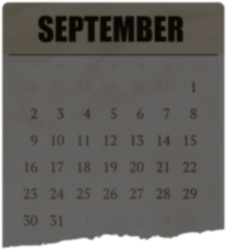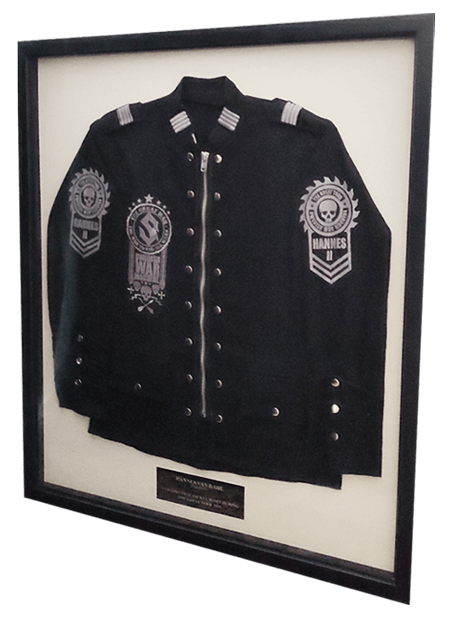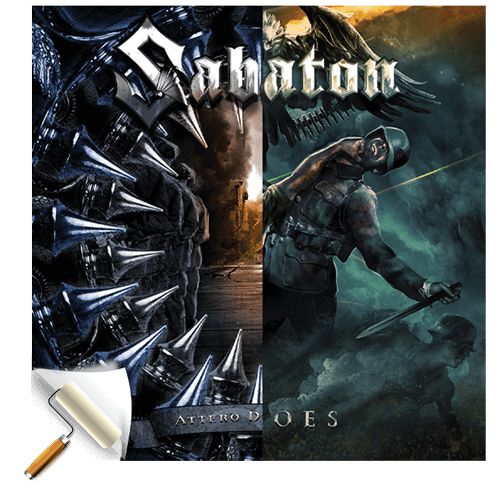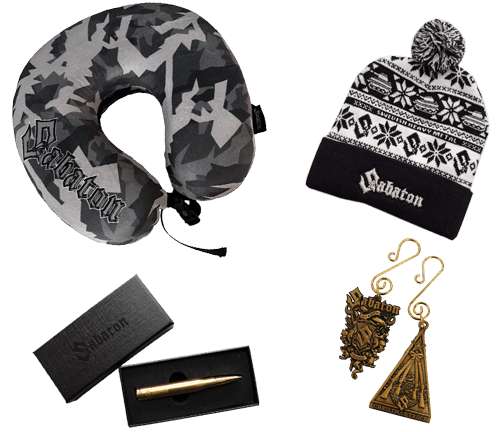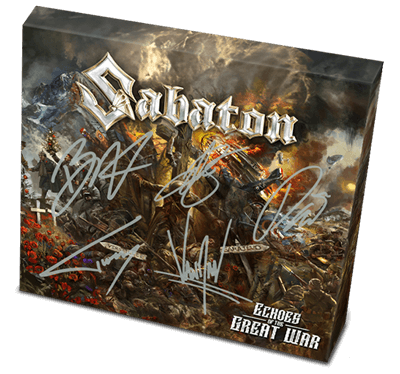Boy Soldiers
The majority of soldiers sent to war in the summer of 1914 believed it would be a short and victorious campaign. They believed they would be home before the leaves fell – most certainly before Christmas.
This expectation led to hundreds of thousands of volunteers rushing into the recruitment offices of their respective armies, all wanting to be part of this grand adventure. But not all of them were grown adults. A sizable portion of these volunteers were young teenagers and underage boys aged 13 to 16 years old, who slipped through the cracks and got sent to the front. Soon, the trenches of the Great War were filled with both the young and the old.
Throughout history, armies always had their “boys” with them who would essentially be the drummers, pipers and buglers. They were teenagers who maybe had abusive parents or came from a terrible work environment, and often saw the armed forces as a last resort to escape their unhappy lives. In the 1910s, working class kids would leave school at the age of 14 to 15 to find employment or apprenticeship. Only the privileged would remain in schools until they were 18 to 21. But the Great War, the opposite of dull civilian life, attracted both groups equally. In fact, there were many politicians and aristocrats who willingly sent their young sons to the frontlines to fulfil a sense of duty.
Prominently among them was Belgian King Albert who said: “I want no special treatment for my son. Let him work in the trenches. He has to know how it feels to have blisters on his hands.” Belgian Crown Prince Leopold was only 13 when he joined the Belgian 12th Line Regiment. Of course, it was mostly a propaganda stunt, but Leopold would eventually experience the trenches and come under enemy fire.
A chance for glory
Back then, the demands of the monarchy, the church and the army for obedience and discipline were pretty universal and intertwined with society. Each classroom would proudly display paintings of famous military leaders or decisive battles to remind students about their nation’s glorious history. The armed forces were seen as bulwarks of security and identity. Nowhere was this more apparent than in Imperial Germany. It was not by chance that the “sailor suit” was the most popular dress for young boys at the time. Teachers and professors also played a huge part in stirring up patriotic fervour among the youth who longed to get “their chance” for glory worth remembering. But this dream was soon shattered on the battlefields of the Great War. The Battle of Langemarck in November 1914 was quickly dubbed by the German public as the “murder of children” and the “death of innocence”. Here, a myth began to take root that thousands of barely trained teenagers and young students were cut down by the older professionals of the British Expeditionary Force.
The official recruitment age back then was between 18-21 in almost all of the warring nations. At that age you were considered a grown adult, ready to make your own decisions. In peacetime, if you wanted to enlist, there would be strict questioning and a general test of the senses, followed by an extensive medical examination. But in the turmoil and chaos of the Great War, there was little time for that.
The armies at the front were bleeding out, and they needed more men to fill the gaps. There were many cases where recruiters were even actively told to not be “too strict” with their demands. If a candidate looked physically fit enough to keep up with the strains of soldiery, then he was most likely waved through. Of course, officially, there was a minimum height requirement, as well as necessary weight and chest measurements, but teenagers could be huge and muscled for their age, especially if they were apprentices on a farm or the metal industry. Even the thin, pasty faced, dull-eyed and pigeon chested were not necessarily excluded by the more dubious recruiters. After all, a couple of regular meals and a healthy lifestyle of exercise and fresh air would surely turn these youths into proper soldiers.
 The youngest soldier in the British Army was Sidney Lewis, who enlisted at just 12 years old. Sidney fought at the Somme in the huge offensives there in the bloody Battle of Delville Wood. Since he had enlisted under a fake name and address, his mother only found out of his whereabouts by meeting one of his comrades who was home on leave. She promptly went to the war office, showed them her son’s real birth certificate and got him discharged. But why did a 12 year old go to war in the first place? Well, the minimum height requirement of the British Army was only 160cm (5ft3), and Sidney was tall and heavily built for his age. But since information was often taken at face value, a fake identity was hard to disprove. And even if a boy was turned down by a more cautious recruiter, there was nothing stopping him from trying another recruiting office the next town over.
The youngest soldier in the British Army was Sidney Lewis, who enlisted at just 12 years old. Sidney fought at the Somme in the huge offensives there in the bloody Battle of Delville Wood. Since he had enlisted under a fake name and address, his mother only found out of his whereabouts by meeting one of his comrades who was home on leave. She promptly went to the war office, showed them her son’s real birth certificate and got him discharged. But why did a 12 year old go to war in the first place? Well, the minimum height requirement of the British Army was only 160cm (5ft3), and Sidney was tall and heavily built for his age. But since information was often taken at face value, a fake identity was hard to disprove. And even if a boy was turned down by a more cautious recruiter, there was nothing stopping him from trying another recruiting office the next town over.
This eagerness might seem strange, but one must remember that every person was suddenly involved in this enormous, all-encompassing war. From kindergarten to university, they were exposed to the propaganda. Parents and neighbours constantly talked about the war, and newspapers and magazines were filled to the brim with stories and exclusive photographs from the font.
The shops sold toy wooden guns and swords, and children played “Germans and French” with replica uniforms. France’s youth was especially gripped by the omnipresence of the war as they were under invasion and raised with deep seated Germanophobia. It was always assumed that one day some generation would avenge the humiliation of 1871 and return Alsace-Lorraine to the nation.
Magazines were not shy of presenting their audience the “Petit Bleu” – the teenage soldier clad in the blue uniform of the poilu, going off to fight the “boche” and the “hun”. A battle near La Bassée in May 1915 was described as follows: “Two French battalions of the line headed the charge, mostly formed of the youngest recruits. The Bavarians held their ground and fought gamely. The youngest soldiers of France rushed the machine-guns, at no matter what loss, emptied their magazines into the crowded trenches, and then jumped in and fought with the bayonet.”
In Imperial Russia, although the official draft age was 19, there were reportedly thousands of teenagers dropping out of school to join the regiments at the front. Girls would even cut off their hair and put on men’s clothing to try and join. Medical examinations, if they happened at all, were often just a formality and hastily done, so a teenager with broad shoulders and an acceptable weight and height was good enough to serve in the artillery or carry boxes of ammo for the machine-gunners. The Cossacks had a strong tradition of teenagers learning how to ride and fight on horseback. Same went for the Guards Regiments, where the rich and important had enrolled their sons to serve the Tsar, as well as their own résumés.
Sons of the regiment
There were also several frontline units that deployed children as spies, since they were considered less suspicious when they were roaming the countryside between the frontlines. War naturally produced more than enough orphans that were left to their own fate. Eight year old Momcilo Gavric was one of them, and became most likely the youngest soldier in uniform during the war, wearing that of the Royal Serbian Army. His family was killed by members of the advancing Croatian Home Guard, who burned down their house. Gavric found his way to a Serbian artillery battalion, who officially “adopted” him. He would witness battle, was given his own uniform, and was even formally promoted to corporal, then eventually to Lance Sergeant.
Such “sons of the regiment” were not uncommon, especially in places where the front was not as clear cut as in the west. In the Ottoman Empire, children had always played a great part when it came to generating patriotism among the populace. Teenagers dressed for war stood at the forefront of ceremonies honouring the fallen. Orphans especially were stylised as the lasting symbols of sacrifice, as they became the sons and daughters of martyrs.
The vast majority of Ottoman teenagers were also left unschooled during the war. Instead, they were taken up by paramilitary associations like the Strength Association, or the Youth League. All of the warring nations had such outdoor youth clubs and scout movements, often with semi-military undertones. Here, the children wore their own uniforms, badges and flags. They marched through the country singing patriotic songs, or sat together at campfires, sharing stories of military legends and war heroes – stories which the boy-soldiers wanted to experience themselves in the Great War of their time. Yet these would very often not have the happy ending they wished for.
And some day that war would end, one way or the other.
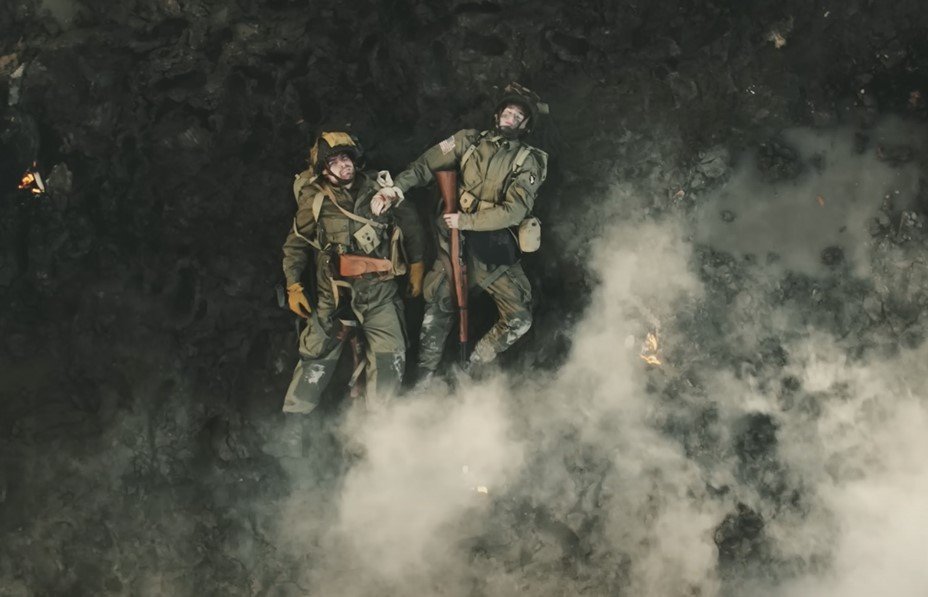 But most soldiers would carry both internal and external scars with them forever. If the violence and horrors could break grown men, then it would most certainly affect the minds of the young. Indeed, many teenagers who came back after weeks or months at the front were unable to return to society. Often, they were left in a pathological state of trauma and shock. How could anyone expect them to return to school or apprenticeship after witnessing all the death and destruction?
But most soldiers would carry both internal and external scars with them forever. If the violence and horrors could break grown men, then it would most certainly affect the minds of the young. Indeed, many teenagers who came back after weeks or months at the front were unable to return to society. Often, they were left in a pathological state of trauma and shock. How could anyone expect them to return to school or apprenticeship after witnessing all the death and destruction?
Tough to say if these were really the unlucky ones, though, as the graveyards of the Great War are certainly filled with the graves of underage soldiers. Fake identities mean that we can never be sure how many actually fought and died, and many, many parents would never find their teenage son’s final resting place.
“We had another lad killed the last day in the trenches and the circumstances are particularly sad for he was only 16 years of age. On Monday night I was sitting warming myself by the cokefire, and young Crowther was sitting there too and he looked so young and childlike as he nodded with sleepiness over the fire. Young Crowther was one of the sentries and I gave the usual order, ‘Next relief there!’ I had only just got into the next bay when I heard a call ‘stretcher-bearers’! I turned and rushed back and there was the poor lad face down in the trench reddening the water all round with his blood. He only lived about ten minutes. The shot entered his back piercing the lung and bursting the main artery. So ended another young life, in the twinkling of an eye.” – Boy Soldiers of the Great War, Richard van Emden
The story of the boy soldiers of World War 1 inspired us to cover Motörhead’s song, ‘1916‘. Take a look at the lyrics here.
If you’re interested in a more visual interpretation of the above story, watch our Sabaton History episode here:
